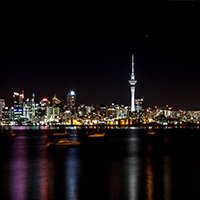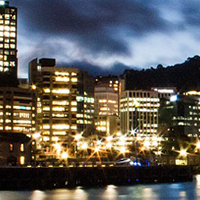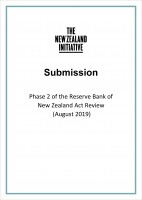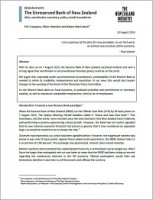
A night mayor could solve the problem of New Zealand nightlife
It would be insane to do the same thing over and over again and still expect different results. It’s a lesson those embroiled in the politics of the night have yet to learn. Read more


It would be insane to do the same thing over and over again and still expect different results. It’s a lesson those embroiled in the politics of the night have yet to learn. Read more

Our report, Living after Midnight, highlights New Zealand's antiquated way of restricting life after dark, and explains how cities such as Melbourne and Amsterdam have implemented very different, but successful, solutions to enable a thriving nightlife. The Initiative's Executive Director Oliver Hartwich spoke on Magic Talk to explains our findings in more details. Read more

Following the release of our report, Living after Midnight: For a better night-time environment, Dr Oliver Hartwich spoke to Newshub and explained how New Zealand could learn from cities such as Melbourne and Amsterdam who have implemented successful solutions to enable a thriving, and safe, nightlife - and highlighted how Sydney got it wrong. Read more
New Zealand's way of regulating nightlife often restricts the opportunities for night owls without improving issues of public health and security. Natanael Rother talks to Bryan Crump on Radio NZ about possible solutions. Read more
The New Zealand Initiative enthusiastically welcomes the Coalition Government’s announcement of an Independent Parliamentary Budget Office. Finance Minister Grant Robertson and Associate Finance Minister James Shaw jointly announced the Office today, to be operational from mid-2021. Read more

It is the hope that this time it will be different that really kills you. Sisyphus at least knew his labours were futile and could resign himself to the task of forever pushing the boulder uphill. Read more

On Monday, Adrian Orr was interviewed on TV One’s Q+A programme. If you had not known that Orr is the Governor of the Reserve Bank of New Zealand, you could have mistaken him for a politician. Read more

This submission is in response to the second round of consultation on Phase 2 of the Reserve Bank of New Zealand Act review. Written by Roger Partridge and Dr Bryce Wilkinson, this submission focuses on four issues raised in consultation documents 2A and 2B, namely: What high-level financial policy objectives should the Reserve Bank have? Read more

Few parents would give their child a cough medicine that had not been trialled. The potential risks of doing so are endless. Read more

For someone with a hammer, everything looks like a nail, they say. For politicians, large-scale restructuring and reorganisations are sometimes that hammer. Read more

As Doctor Frankenfurter prepared to step up the reactor power input three more points and bring life to the Rocky Horror in the classic Rocky Horror Picture Show, he welcomed the assembled “unconventional conventionists” who would witness his triumph. Unconventional monetary policy is a bit like Doctor Frankenfurter’s giant defibrillator experiment with the Rocky Horror. Read more

With its rate cut on 7 August 2019, the Reserve Bank of New Zealand surprised markets and sent a strong signal that unorthodox or unconventional monetary policy could be on the cards. We argue that, especially under unconventional circumstances, predictability of the Reserve Bank is needed to retain its credibility, independence and reputation. Read more
Following the larger than anticipated cut in the cash rate, the Reserve Bank of New Zealand has signalled its preparation for unconventional monetary policies such as negative interest rates and quantitative easing. But such a move requires an urgent clarification of the Remit given to the RBNZ’s Monetary Policy Committee, argues a new research note by The New Zealand Initiative. Read more

What would happen if New Zealand banks implemented negative interest rates? Executive Director Dr Oliver Hartwich discusses his concerns on TVNZ Breakfast following the Reserve Bank's move of cutting the OCR to 1%. Read more

When US President John F. Kennedy approved the Bay of Pigs invasion in 1961, he relied on advice from his staff, the defence force and the secret service. Read more